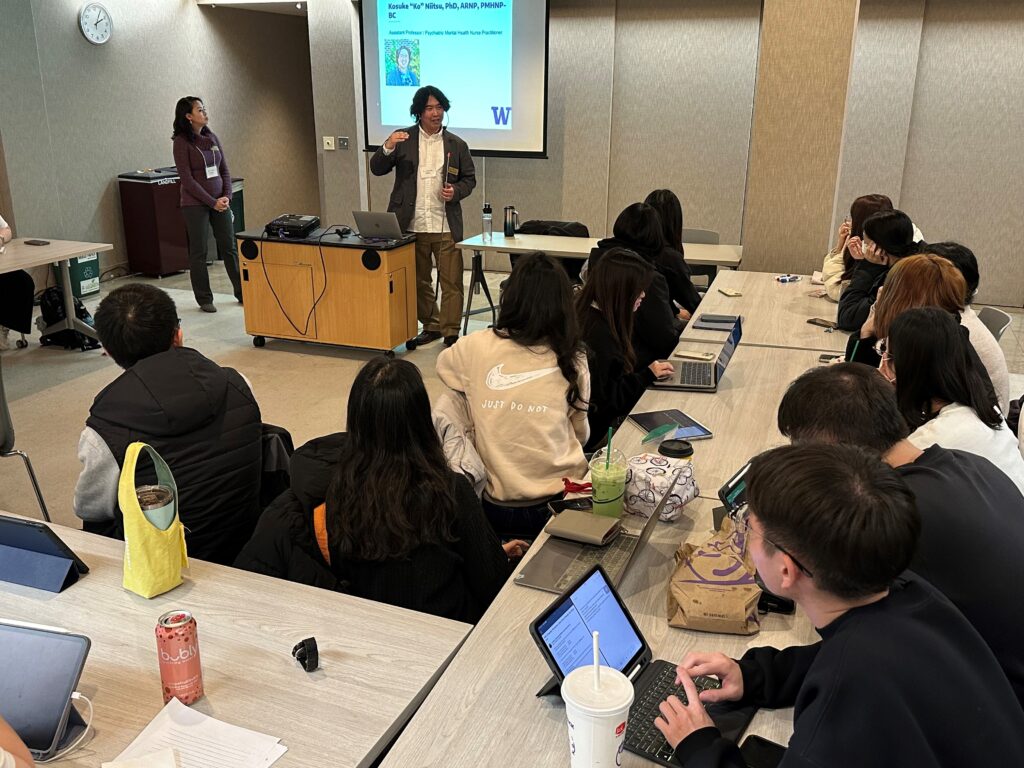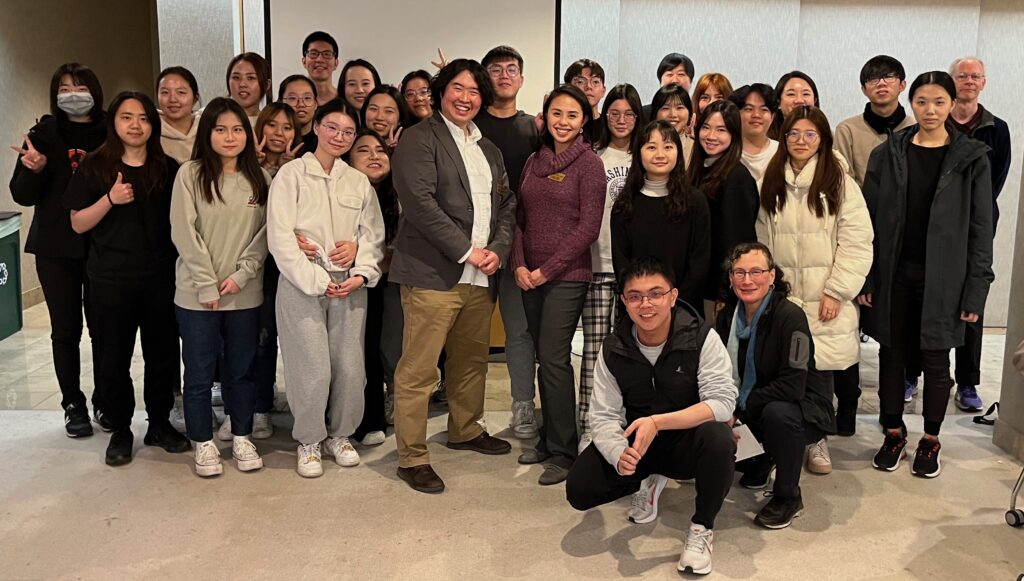Teaching about Culture and Mental Health to Taiwanese Nursing Students
“What is culture? How does culture influence your mental health?”
Guest lecturers Dr. Lillian Chen and Dr. Kosuke Niitsu posed these questions to a group of visiting Taiwanese nursing students from the Chang Gung University of Science and Technology (CGUST) in Taiwan. The undergraduate student group is taking part in a program focused on communications for medical and nursing professionals in Seattle provided by the International and English Language Program (IELP) at the University of Washington.
Chen is a licensed psychologist and associate director of the Counseling Center (CC), and Niitsu is an Assistant Professor in the School of Nursing & Health Studies and a licensed psychiatric mental health nurse practitioner in CC at the University of Washington Bothell (UW Bothell). Chen and Niitsu started their lecture by describing their scholarly journeys to become mental health professionals in the United States. A CGUST student asked, “What is the most difficult problem to solve when you study abroad?” As a former international student, Chen answered, “visa issues,” and Niitsu, who was also a former international student, agreed. After defining culture, they introduced mental health conditions unique to specific cultures, such as “Hikikomori” in Japan and “Shenjing Shuairuo” in Taiwan. They also discussed how cultural beliefs shape perceptions of stigma related to mental illness and emphasized the importance for nurses to speak up for de-stigmatization and promote recovery.
Furthermore, Chen and Niitsu compared and contrasted the similarities and differences between Taiwanese, Japanese, and American treatments of mental health. Chen described “Feng Shui” as a unique cultural custom in Taiwan that involves re-arranging furniture in the house, while Niitsu noted that there is a similar custom called “Fusui” in Japan.
This Chang Gung University of Science and Technology program was jointly developed by IELP’s Curtis Cortelyou, program manager, and Cheryl Wheeler, program director.
“The students had an excellent experience and really benefited from the thoughtful perspectives that both Dr. Chen and Dr. Niitsu brought to the important issue of mental health,” noted Curtis Cortelyou, IELP program manager. Cortelyou continued, “It was especially interesting to compare the variety of approaches to mental health issues that we see in different cultures and countries, including Taiwan, Japan, and the United States. Their presentation really did a great job of bringing those cultural aspects of mental health diagnosis and treatment to life.” Jennifer Altman, IELP advanced lecturer, stated, “As I was debriefing their talk with my students the next day, they shared that they really enjoyed their talk. I thank Drs. Chen and Niitsu for sharing how they approach patient care with us.”
The third-year Taiwanese nursing students from CGUST wrap-up their month-long visit to Seattle with a closing ceremony on Friday, February 16.
IELP is administered by UW Continuum College, the university’s professional and continuing education unit. UW IELP offerings help international learners improve communication skills, prepare for further study in the United States and explore American business, culture and more. Chang Gung University of Science and Technology went on a number of site visits while in Seattle, including a tour of the UW School of Nursing and UW Medical Center, as well as the WISH Harborview Training Center where they had the opportunity to practice virtual reality knee surgery and improve their intubation skills.

